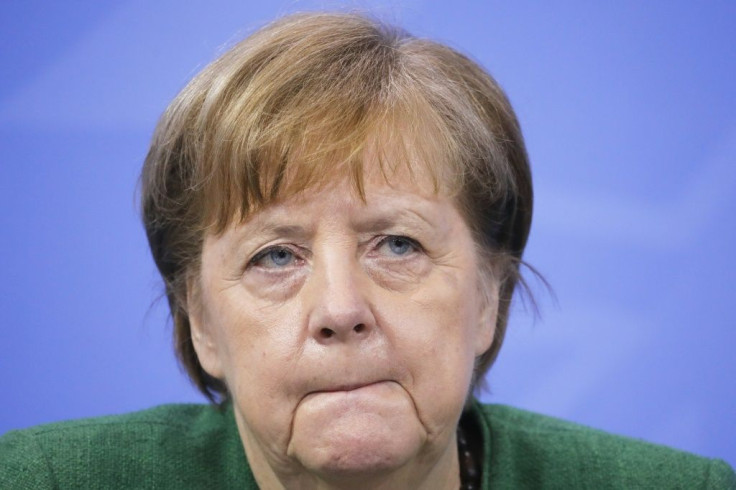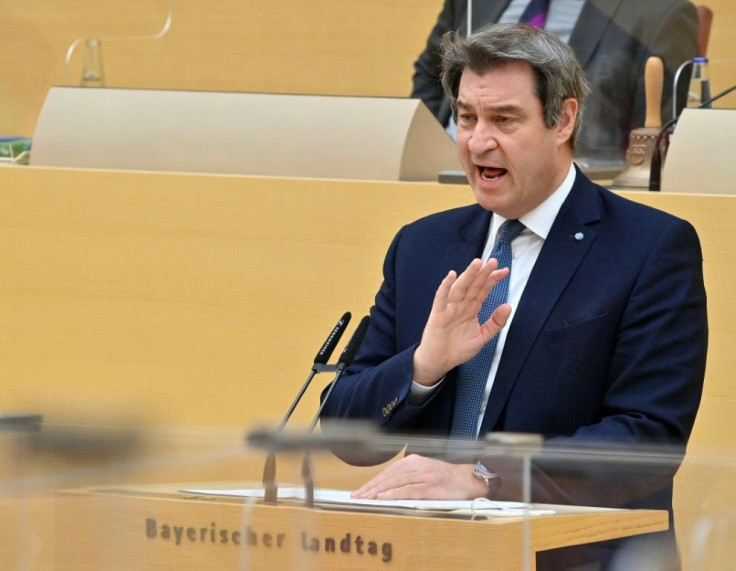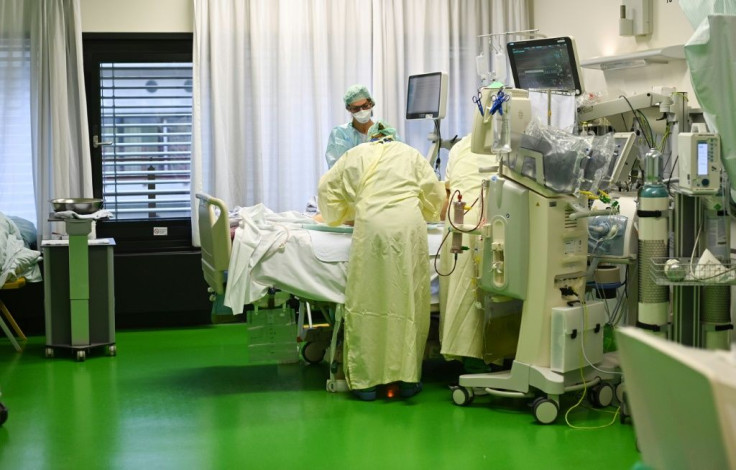Merkel Party Admits Covid Failings After Defeat In Regional Polls
German Chancellor Angela Merkel's conservative party on Monday admitted it must manage the pandemic better after suffering heavy losses in two regional polls, six months before a general election.
The centre-right Christian Democratic Union (CDU) scored its worst-ever results in the southwestern states of Baden-Wuerttemberg and Rhineland-Palatinate, according to preliminary results.
"The corona crisis is affecting everyone in our country, and that is why there have been debates about corona management. We must improve here," Armin Laschet, elected as the new head of the CDU in January, told reporters in Berlin.

Markus Soeder, the head of the CDU's Bavarian sister party, the CSU, called the results a "wake-up call" for the conservative alliance saying it must prove it can "govern well and reliably" in the run-up to the general election.
On September 26, Germans will choose a successor to Merkel, who is stepping down after 16 years as chancellor.

Sunday's rout was blamed on voter frustration over a sluggish vaccine rollout, a delayed start to mass rapid testing and higher infection numbers despite months of shutdowns.
In the days leading up to the regional votes, the conservative alliance was also rocked by accusations that some lawmakers had profited from deals to procure face masks in the early days of the pandemic.
"It can't go on like this," wrote Der Spiegel weekly newspaper, saying Merkel's house was on fire.

The first order of business should be to decide the alliance's candidate for chancellor, Spiegel said.
The obvious choice would be Laschet, but opinion polls suggest Germans would prefer to see Soeder in the top job, though he has yet to declare a willingness to run.
Laschet reiterated the conservatives aimed to pick a candidate before May 23.

Merkel's CDU garnered just 24 percent of the vote in the wealthy state of Baden-Wuerttemberg, down from 27 percent five years ago, preliminary results showed.
The state is an outlier in Germany because it has been run by Green Party premier for over a decade.
Winfried Kretschmann led the centre-left ecologists to a record result of more than 32 percent this time around -- adding to speculation that they could emerge as kingmakers in September's election.
Green party co-leader Robert Habeck welcomed the result as "a great sign that people are willing to give us responsibility and mandates, and to give us their trust" in times of crisis.
In neighbouring Rhineland-Palatinate, where the CDU slumped to around 28 percent from almost 32 percent in 2016, the centre-left Social Democratic Party (SPD) gained victory with a score of around 36 percent.
The SPD, junior partner in the federal government, has led Rhineland-Palatinate in a coalition for the past five years.
Finance Minister Olaf Scholz, the SPD's chancellor candidate, said the result showed it was "clear that there are majorities without the (conservatives) and that there are several options".
But Laschet attacked Scholz for recent comments that Germany would be able to vaccinate up to 10 million people a week by the end of March, saying "every minister to take care of his portfolio".
He said Scholz's claims did not "correspond to reality" and would "unsettle people".
A survey published on Monday by Bild newspaper had the conservatives polling at just 29.5 percent nationally, their lowest level of support for a year.
The party's woes come as Germany braces for a third Covid-19 wave, with authorities saying infections could reach an all-time high by mid-April.
© Copyright AFP 2024. All rights reserved.





















